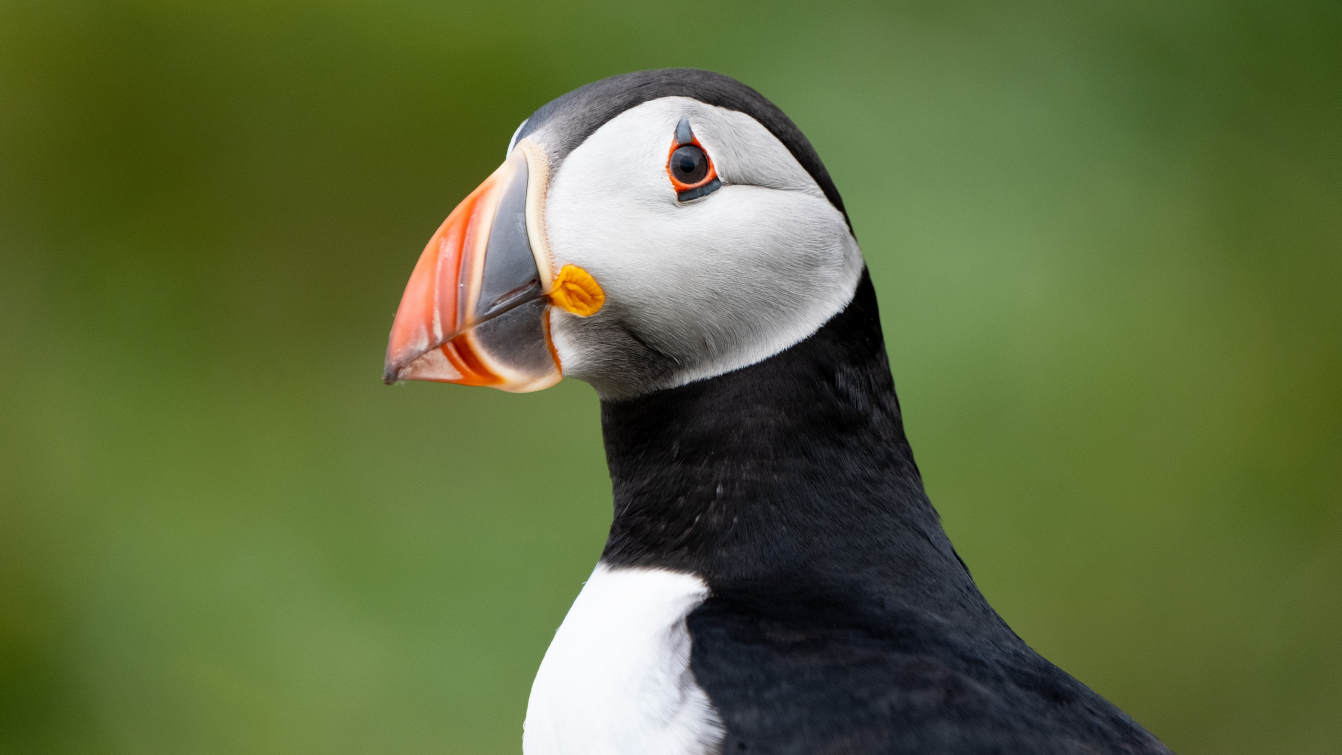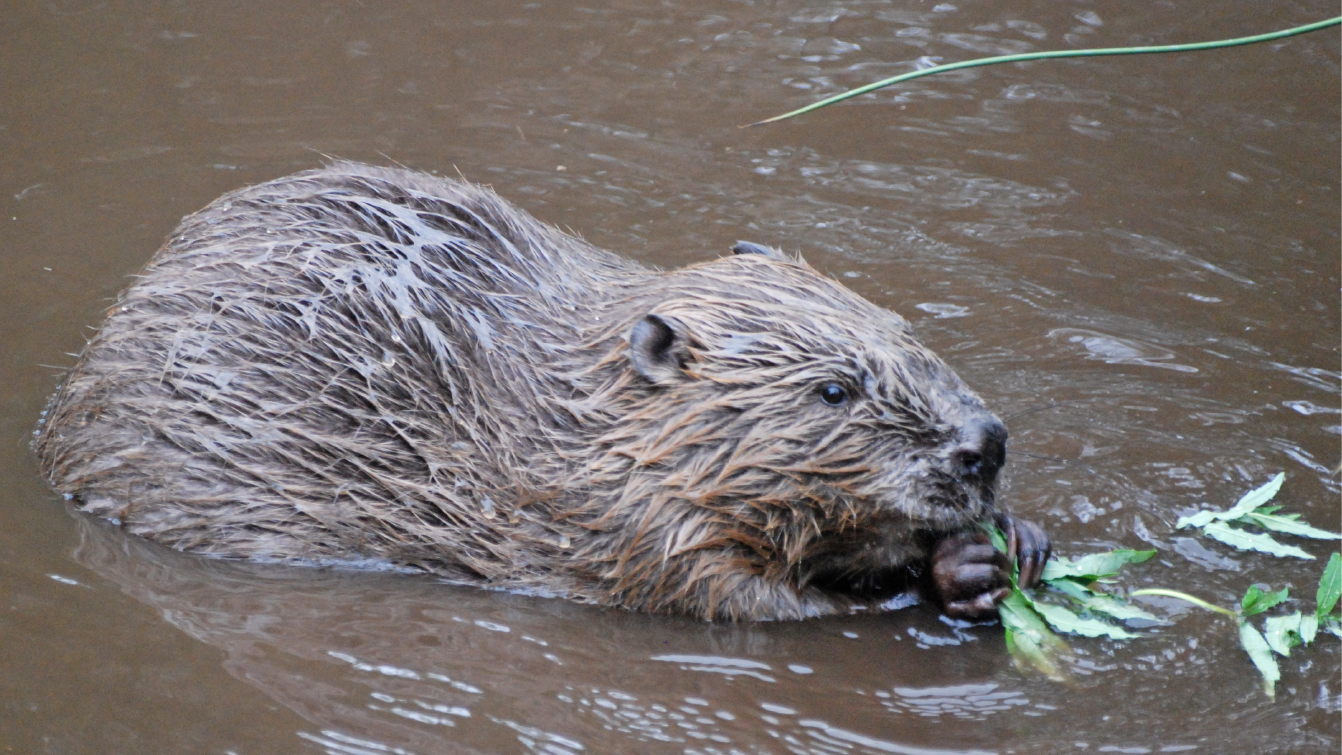25th June 2024
Whether you’re surrounded by the bright lights of a city or patchwork countryside, you have the power to rewrite the story of local wildlife. However, it can be challenging to know where to begin if you don’t know much about the species you’re hoping to help.
So, we’ve created a quick-fire fact file for seven of the UK’s most popular species – because understanding the chronicles of wildlife could inspire you to support them…
British birds
We couldn’t decide on one bird species to focus on, since they’re all so spectacular, so here are three of our favourite feathered facts:
- Puffins are also referred to as ‘parrots of the sea’ because of their brightly coloured bills (beaks)!
- House sparrows were first recorded in the UK during Anglo-Saxon times, over 1,500 years ago!).
- The oldest blackbird on record reached an incredible 20 years of age, despite a blackbird’s average lifespan being around three years.
Sadly, between 2015 and 2020, the populations of almost half of all UK bird species declined – with woodland bird populations showing a 59% decrease. Which is why our native bird species need your help!

Hedgehogs
You may not know the following facts about our favourite spiny mammals:
- Hedgehogs are lactose intolerant – so should never be offered milk.
- Hedgehogs have a top speed of 5mph!
- Hedgehogs are great at running, swimming, and climbing.
Unfortunately, it’s estimated that hedgehog populations in rural areas have declined by between 30% and 75% since 2000. But, making your garden or outside space hedgehog friendly (where possible) could have a positive impact on future hedgehog populations!
Bees
The humble bumblebee is one of our cutest pollinators, though all bees are important:
- We can hear a honeybee’s ‘buzzing’ because their wings beat so quickly, at around 11,400 times a minute.
- Bees have different personalities; for example, honeybees and bumblebees are social so live and work in groups led by a queen, though leaf-cutter bees prefer a solitary life!
- Bees are crucial to our survival – they’re responsible for pollinating the plants that provide most of our food, e.g. fruit and vegetables.
It’s believed that up to 35 bee species here in the UK are at risk. To learn more about the wonders of bees and how to help them, you could listen to our podcast episode titled ‘Bee part of the change – Understanding our winged heroes!’.
Foxes
Here are our top three facts about the fantastic fox:
- Foxes are members of the dog family, also known as ‘Canidae’, though it’s impossible for British foxes and domestic dogs to breed together.
- A male fox is referred to as a ‘dog’, a female fox is known as a ‘vixen’, and baby foxes are called ‘cubs’.
- Foxes use body language and facial expressions to communicate with each other – and will wag their tails when greeting family members!
In case you’re wondering the best types of food to offer these fluffy garden visitors, you could take a look at our article about what to feed UK wildlife!
Badgers
Despite their shyness, we can learn a lot about badgers and their history – including:
- Earthworms make up around 80% of a badger’s diet!
- Badgers call underground ‘setts’ home, and a social group of badgers who live in the same sett is known as a ‘clan’.
- Once upon a time, badgers roamed Britain in the same era as wolves, brown bears, and arctic foxes.
Red squirrels
We can’t help but adore the fairytale features of the gorgeous red squirrel, so here are our top three facts about this magical little mammal:
- Red squirrels make a distinctive ‘chuk chuk’ sound when communicating with each other!
- Red squirrels don’t hibernate, though they will still collect food to store over winter.
- Since the arrival of grey squirrels from America in the 1870s, the population of red squirrels in the UK has decreased from around 3.5 million to just 160,000.
Have you always wanted to see red squirrels in person? If so, you’ll need to visit nature reserves in the Isles of Scilly, Isle of Wight, Cumbria, Dorset, Lancashire, Northumberland, North Wales, or Perthshire.
Beavers
While you’re unlikely to see a beaver wandering past your home (unless you live near beaver-friendly sites around Knapdale, the River Tay, and River Otter), we wanted to share that:
- Beavers are now deemed a protected species in Scotland, where they are being reintroduced, after the species had been extinct in the UK since the 16th century.
- Beavers have orange teeth, due to the iron in their enamel.
- Beavers are semi-aquatic rodents who can hold their breath for up to 15 minutes underwater.

If you love wildlife as much as we do, and long to nurture the nature in your neighbourhood, get involved in our ‘Tails’ of UK Wildlife campaign today!
Animal welfare blog
If you found this blog useful, why not visit our animal welfare blog to find more articles about animal at risk around the world?
From news and facts, to charities helping protect animals and the great work they do - find out more about animal welfare and those making a difference.
Charities we support
Every year we donate hundreds of thousands of pounds to charities - find out more about the charities we support.
